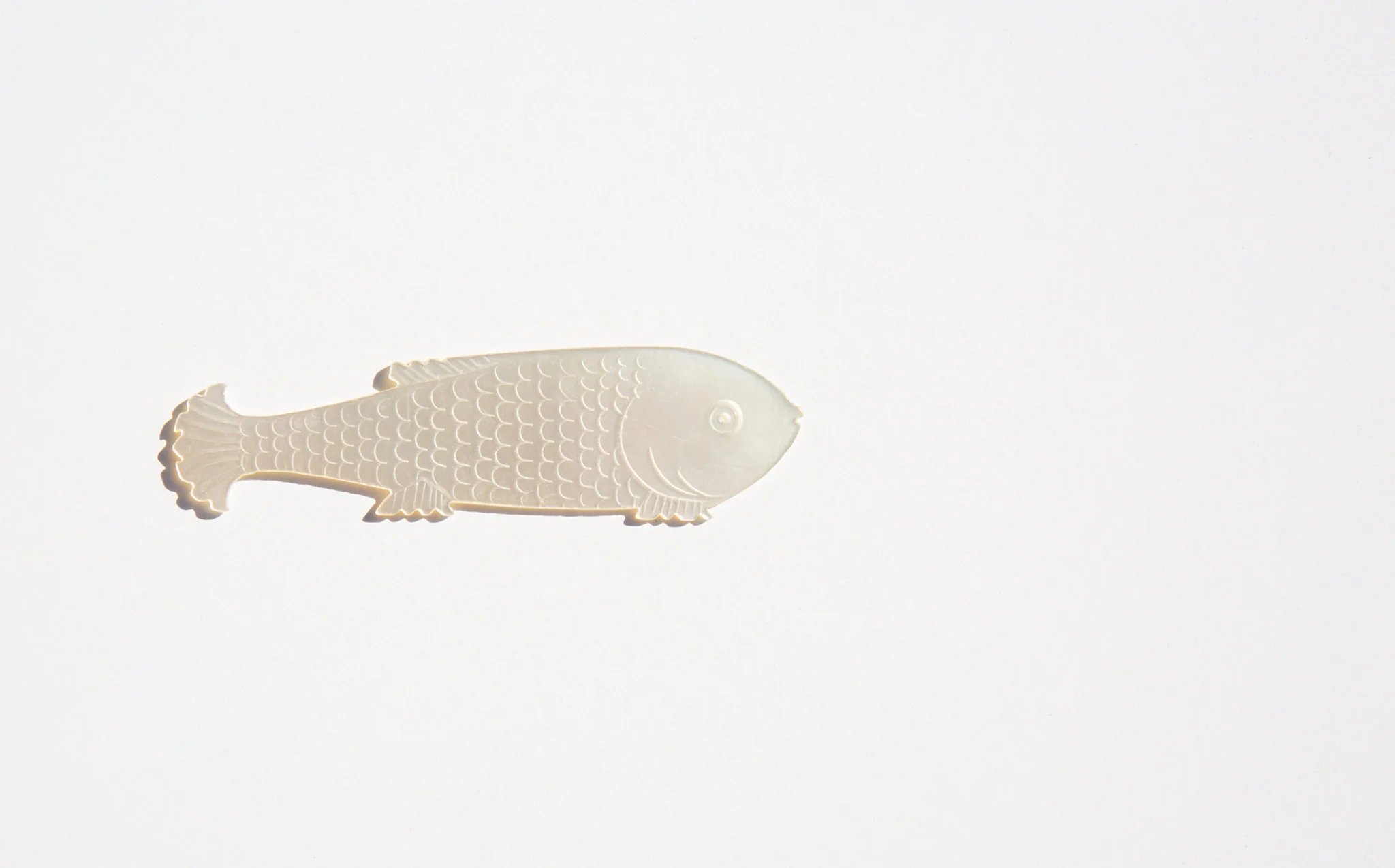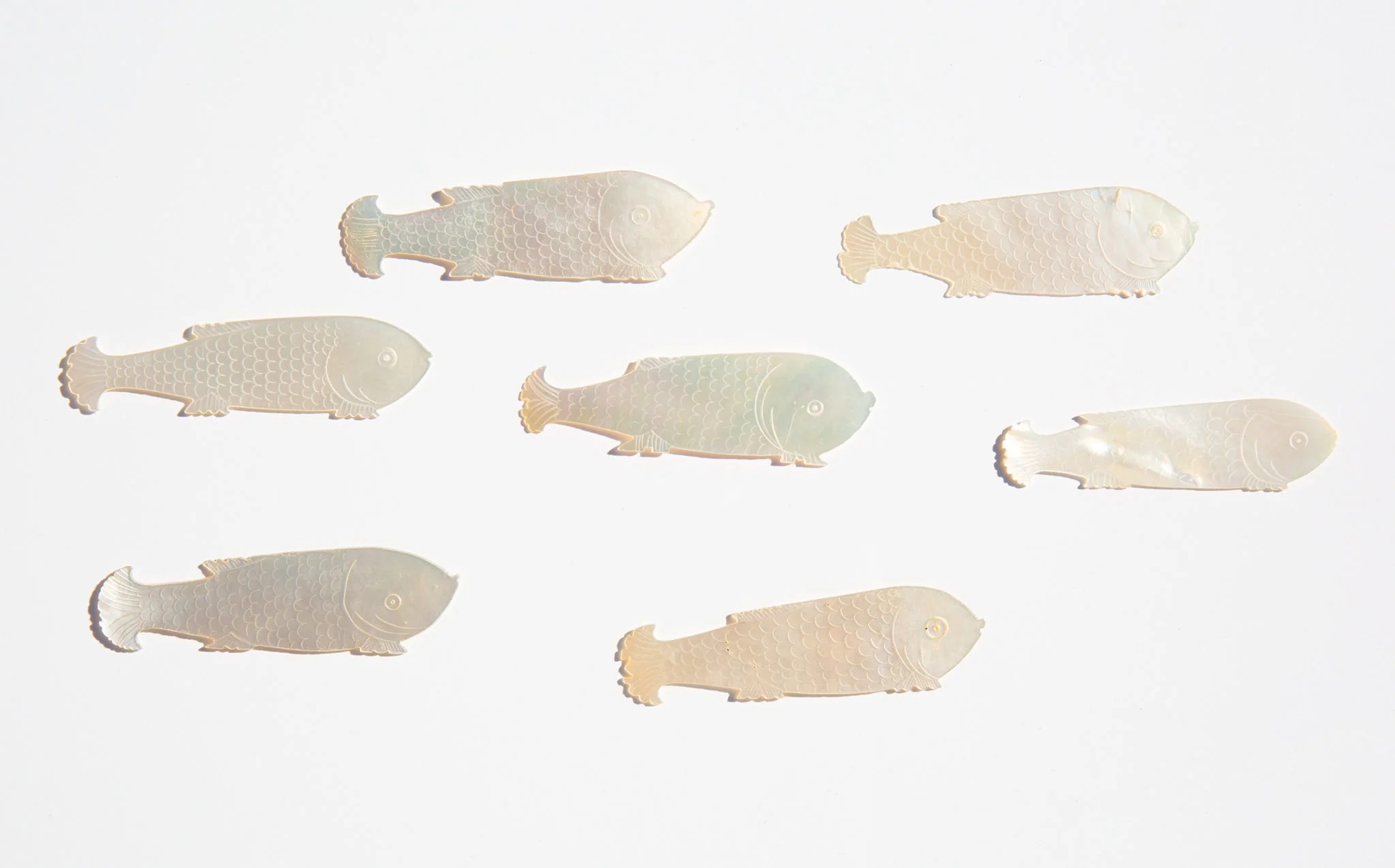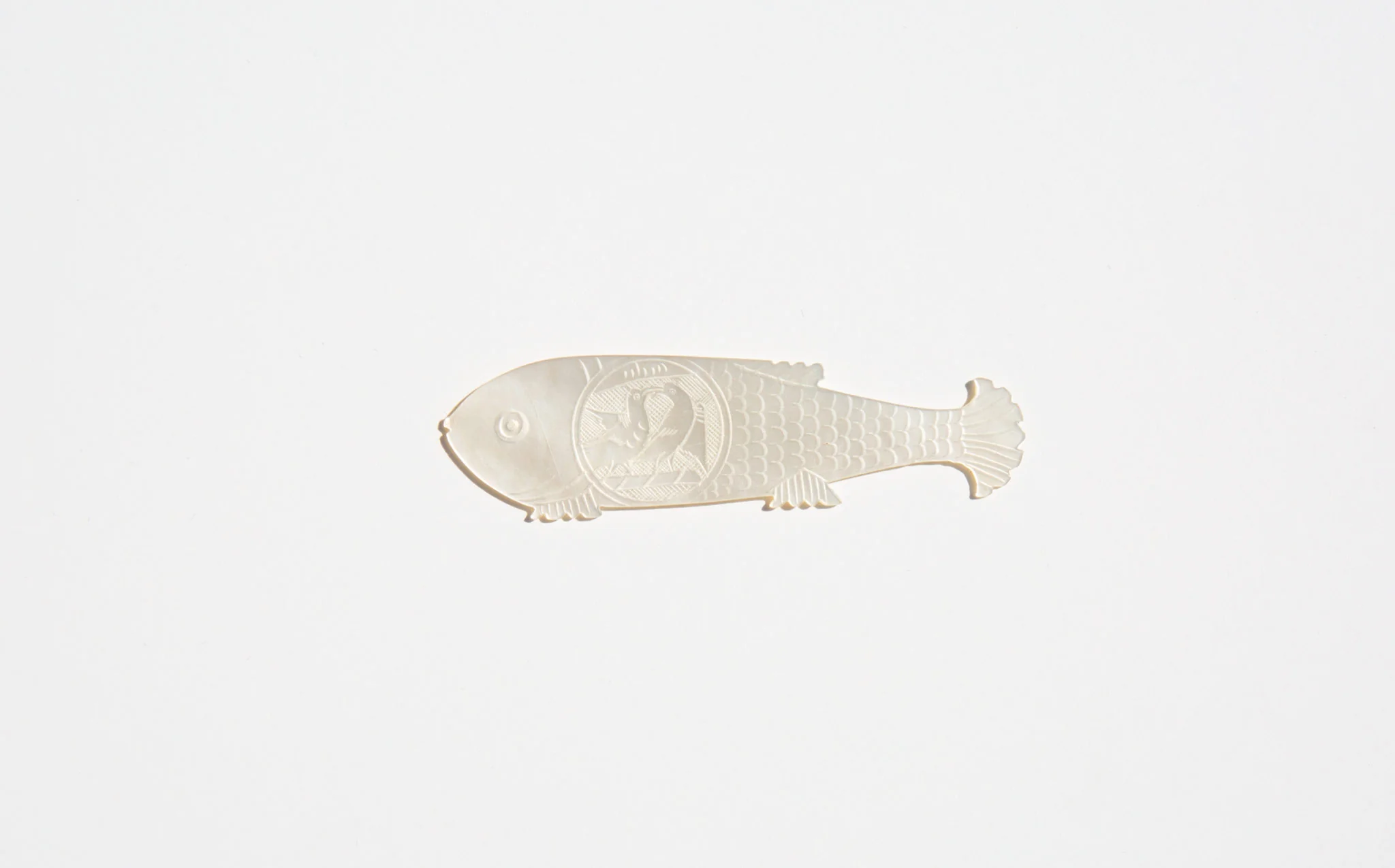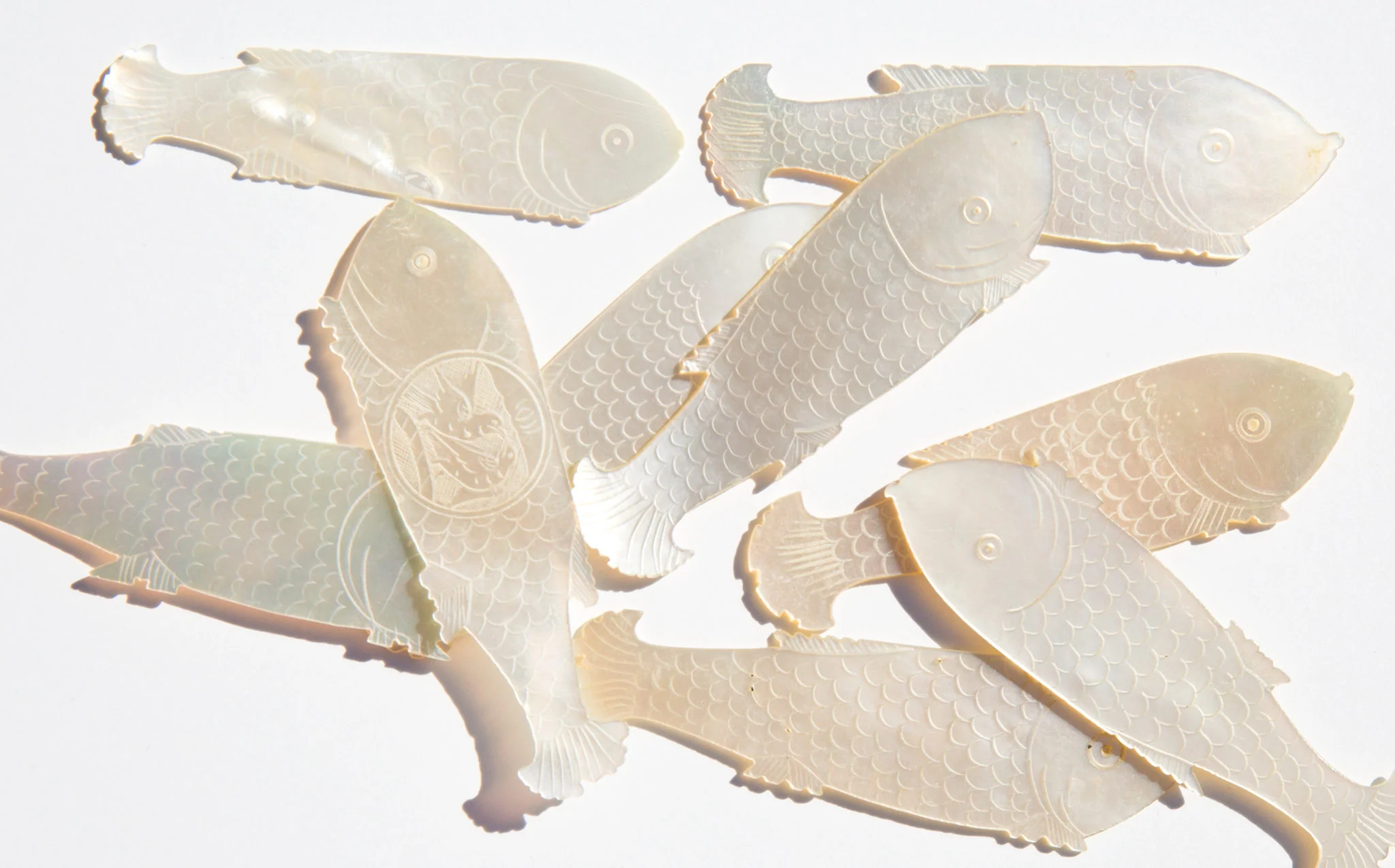Antique, hand-engraved mother of pearl gaming chips crafted in China for export to the gaming tables of Britain's aristocracy.
Antique, hand-engraved gaming chips crafted in China for export to Britain. The Georgian and Victorian aristocracy used the chips when playing parlor games.
In Chapter 16 of Jane Austen’s Pride and Prejudice Lydia Bennet is playing a simple card game called Lottery at Mrs Phillips’s house.
Elizabeth went away with her head full of him. She could think of nothing but of Mr. Wickham, and of what he had told her, all the way home; but there was not time for her even to mention his name as they went, for neither Lydia nor Mr. Collins were once silent. Lydia talked incessantly of lottery tickets, of the fish she had lost and the fish she had won; Mr. Collins, in describing the civility of Mr. and Mrs. Philips, protesting that he did not in the least regard his losses at whist, enumerating all the dishes at supper, and repeatedly fearing that he crouded his cousins, had more to say than he could well manage before the carriage stopped at Longbourn House.
The chips could be many shapes but were often fish because fish were seen as symbols of good luck, wealth and abundance in China.
The Chinese also used fish, specifically the koi, as a symbol of longevity, since that fish grows very old, and as a symbol of unity and fidelity, because they often swim in pairs. Fish charms were often given as wedding gifts to represent a perfect union and as a good omen for fertility because of the fish's ability to reproduce rapidly and in large volumes.
Description
Antique, hand-engraved mother of pearl gaming chip crafted in China for export to the gaming tables of Britain's aristocracy. The chips were shaped as fish because they are symbols of good luck, wealth, abundance, and longevity.
Sizing + Info
These pieces are antique and vary slightly in size and shape.
Approximately 1.5-2.25" long, 0.5" wide.
Shipping
$8 standard shipping, free shipping on orders of $100 or more




Fish Gaming Tokens
Antique, hand-engraved gaming chips crafted in China for export to Britain. The Georgian and Victorian aristocracy used the chips when playing parlor games.
In Chapter 16 of Jane Austen’s Pride and Prejudice Lydia Bennet is playing a simple card game called Lottery at Mrs Phillips’s house.
Elizabeth went away with her head full of him. She could think of nothing but of Mr. Wickham, and of what he had told her, all the way home; but there was not time for her even to mention his name as they went, for neither Lydia nor Mr. Collins were once silent. Lydia talked incessantly of lottery tickets, of the fish she had lost and the fish she had won; Mr. Collins, in describing the civility of Mr. and Mrs. Philips, protesting that he did not in the least regard his losses at whist, enumerating all the dishes at supper, and repeatedly fearing that he crouded his cousins, had more to say than he could well manage before the carriage stopped at Longbourn House.
The chips could be many shapes but were often fish because fish were seen as symbols of good luck, wealth and abundance in China.
The Chinese also used fish, specifically the koi, as a symbol of longevity, since that fish grows very old, and as a symbol of unity and fidelity, because they often swim in pairs. Fish charms were often given as wedding gifts to represent a perfect union and as a good omen for fertility because of the fish's ability to reproduce rapidly and in large volumes.